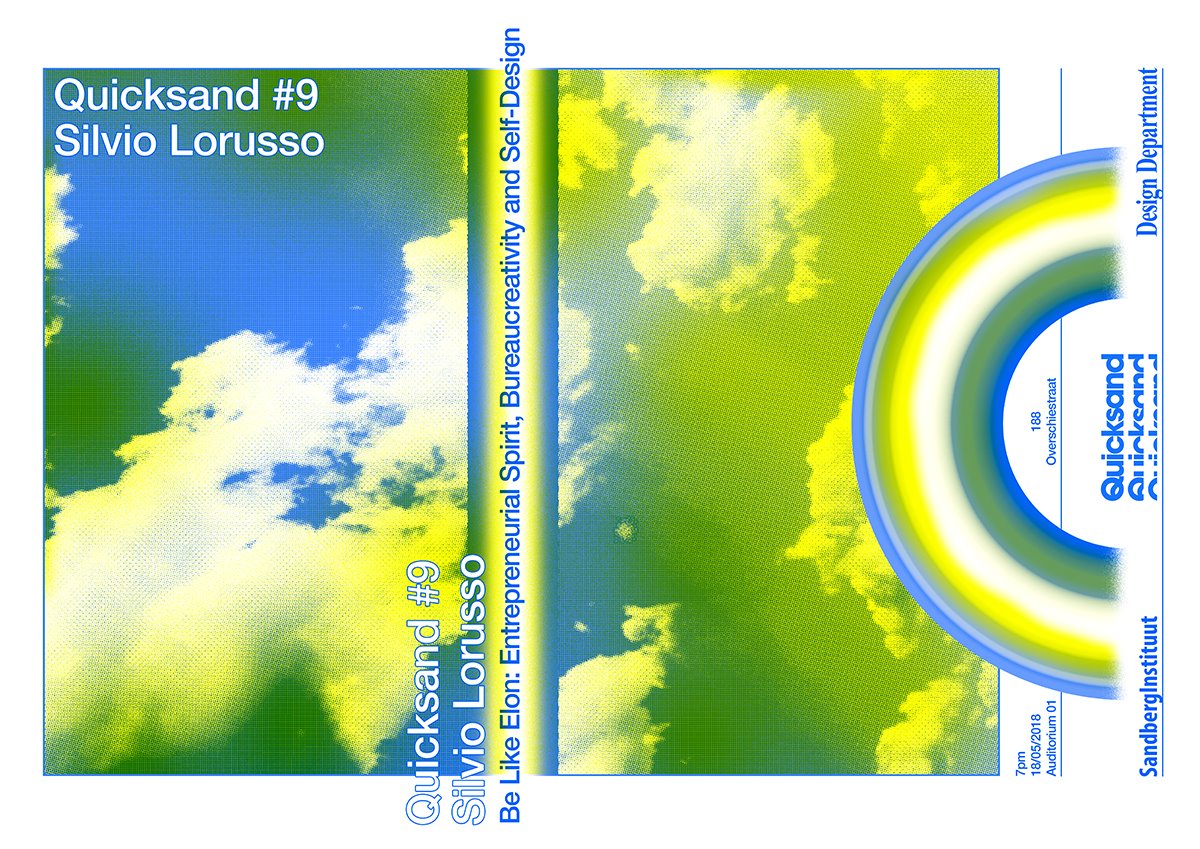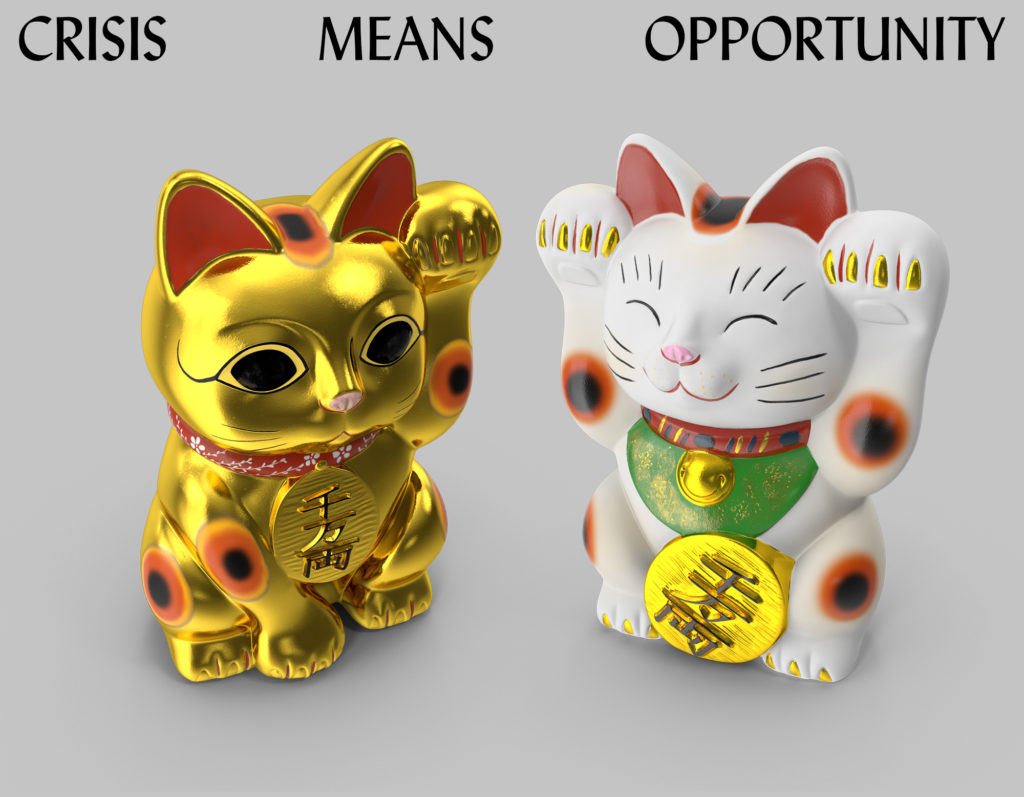Tomorrow I’m giving a talk at Sandberg Instituut and that’s why I was blessed with a flyer designed by the students of the graphic design department. Come and say hi, here’s the abstract:
Be Like Elon: Entrepreneurial Spirit, Bureaucreativity and Self-Design
“You must become an entrepreneur”. This is the obsessive refrain one can hear at any level of society and education. But what is entrepreneurship? What’s behind the elusive notion of entrepreneurial spirit? In this Quicksand talk, Silvio Lorusso will delve into the entrepreneurial culture formalized through the work of, among others, Joseph Schumpeter, Peter Drucker and Tom Peters to show that a radical attitude, one that passionately asks for change, might not be so different from the mindset prescribed by entrepreneurialism. When one’s disposition is instrumentalized to please an expanded bureaucracy that indifferently requires to think differently, design becomes first and foremost a matter of self-design.





